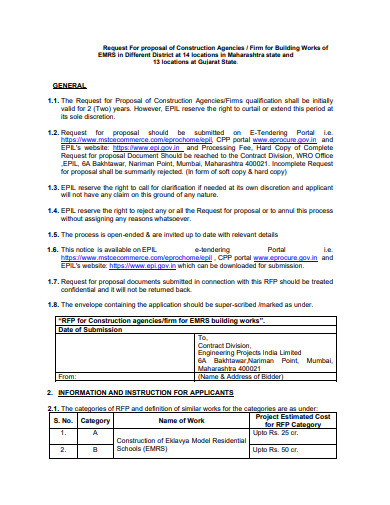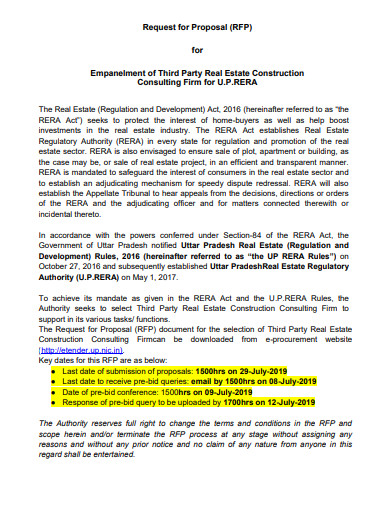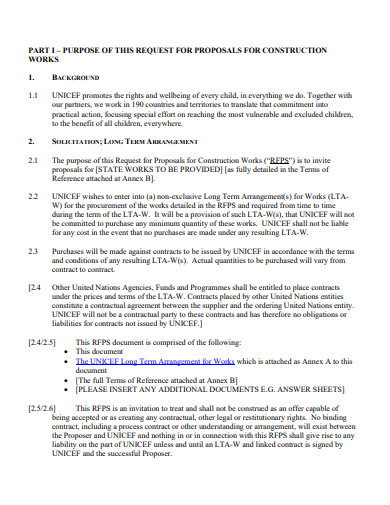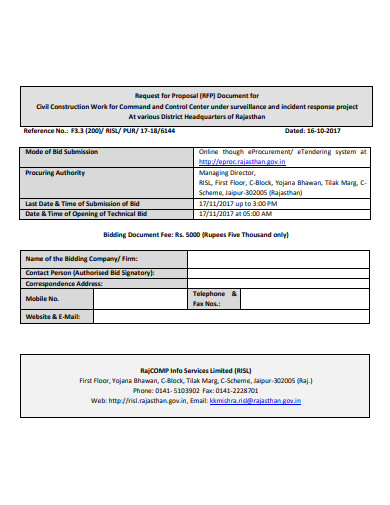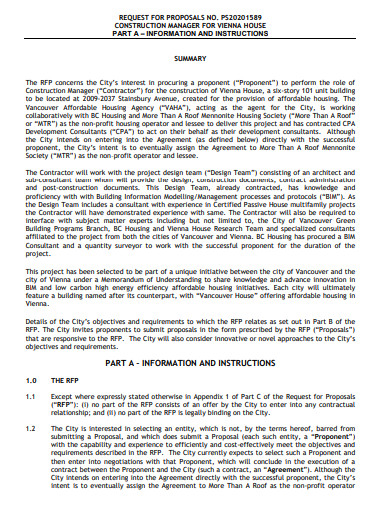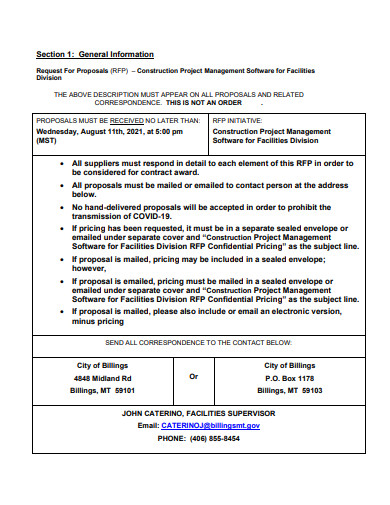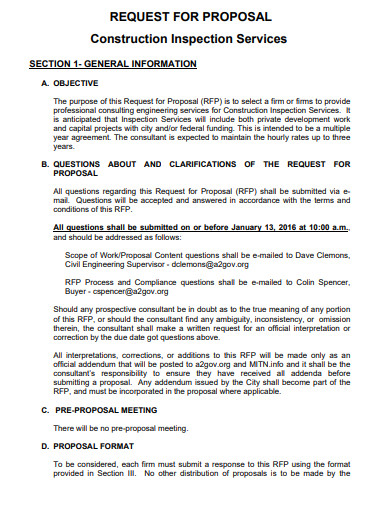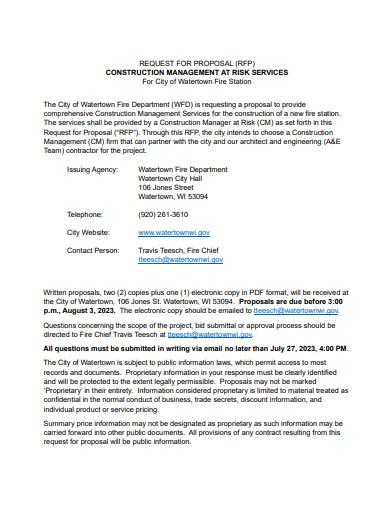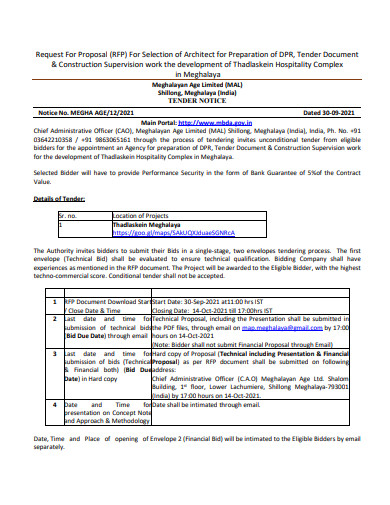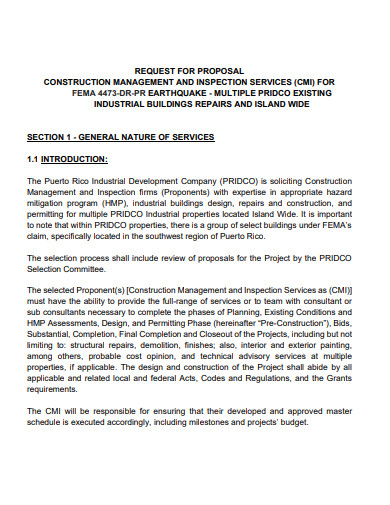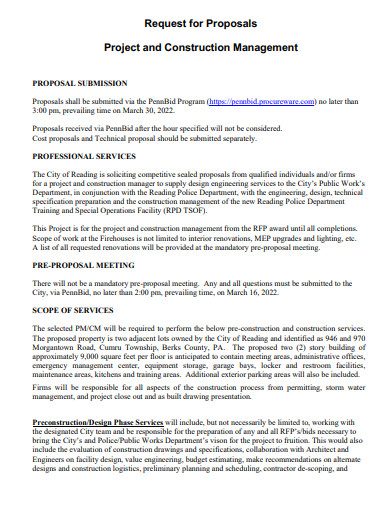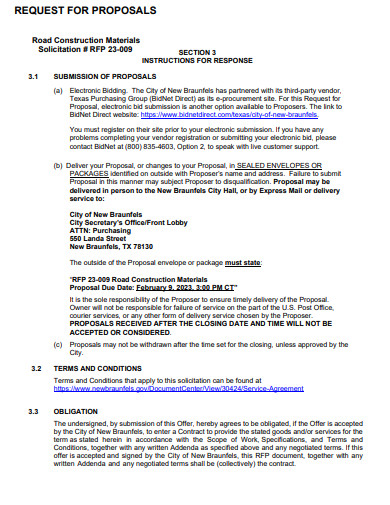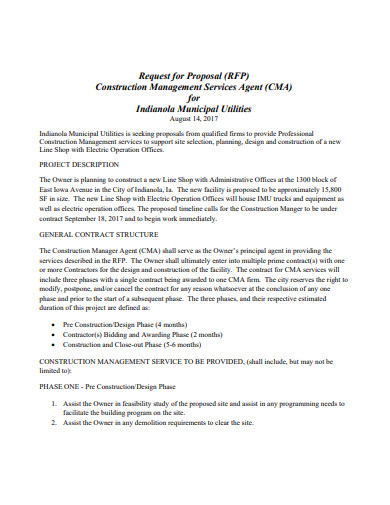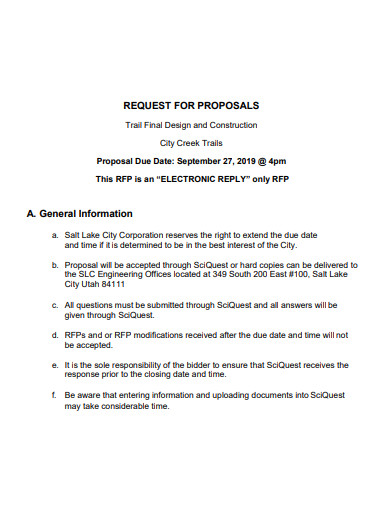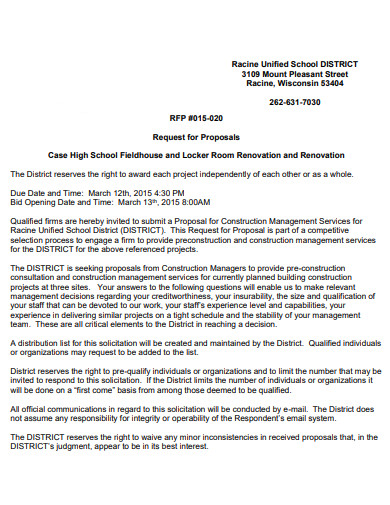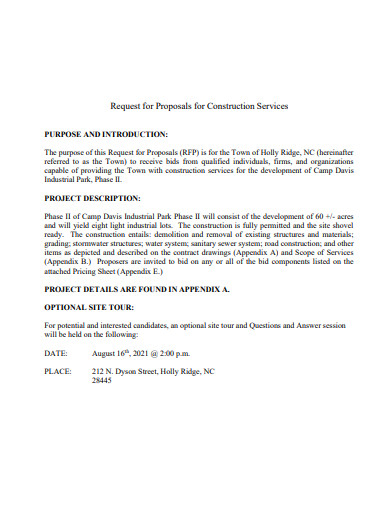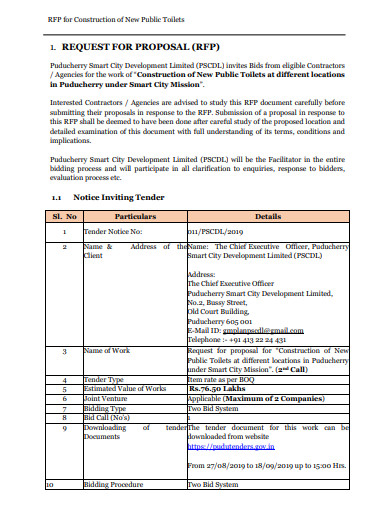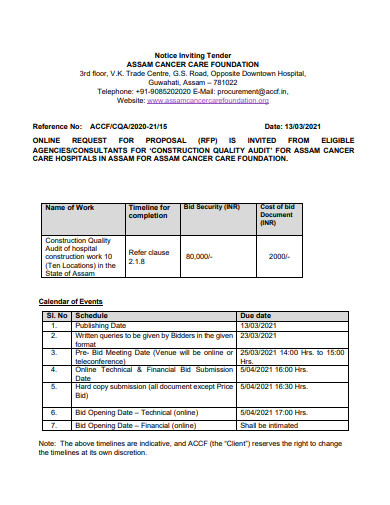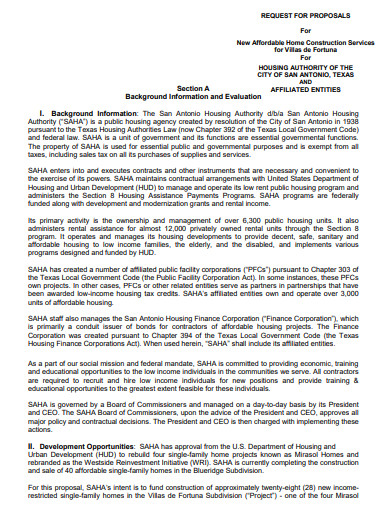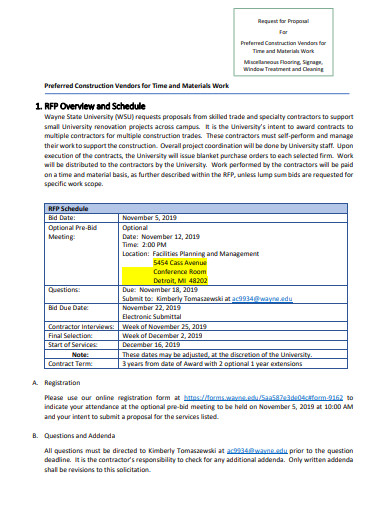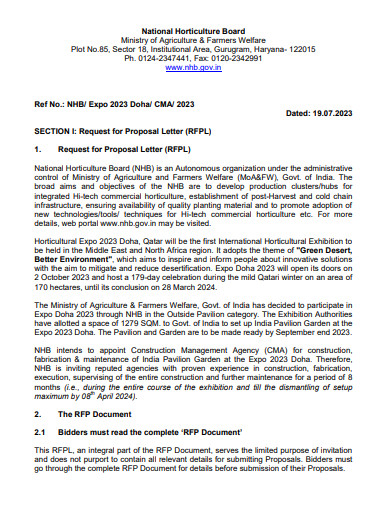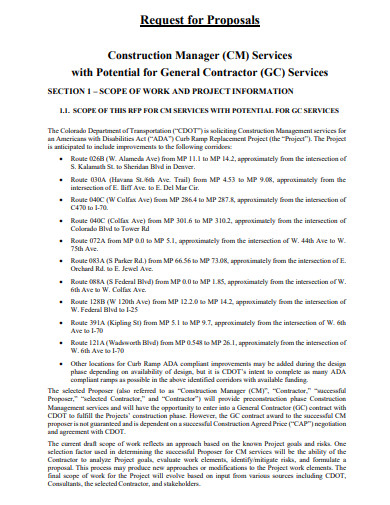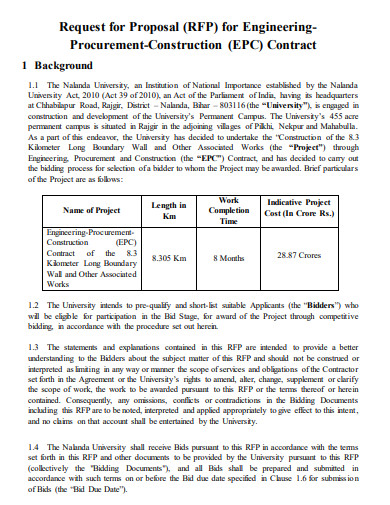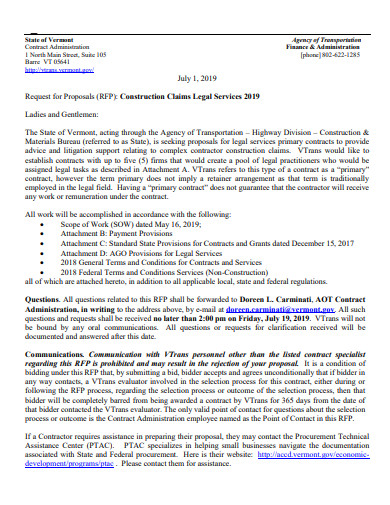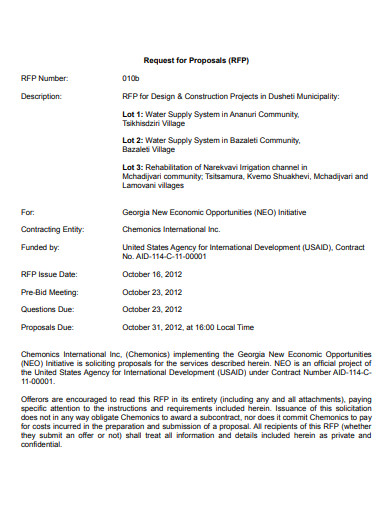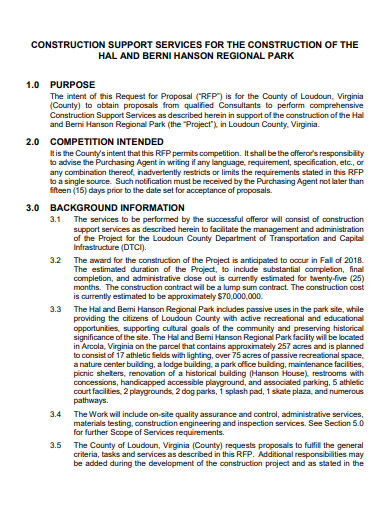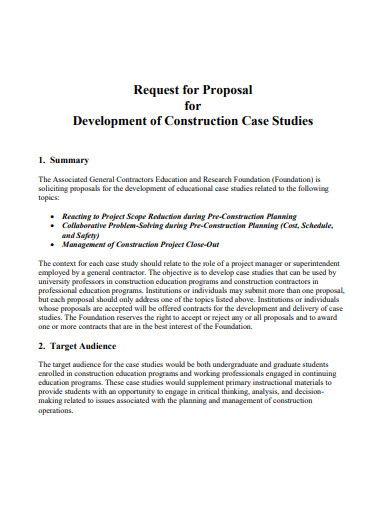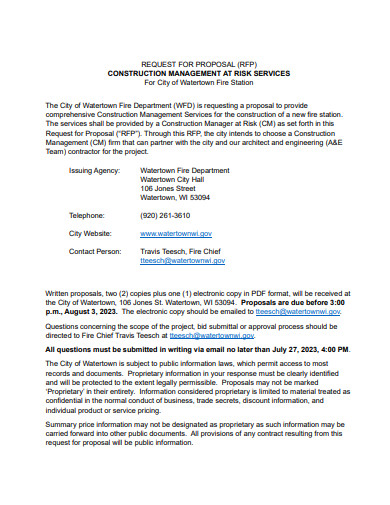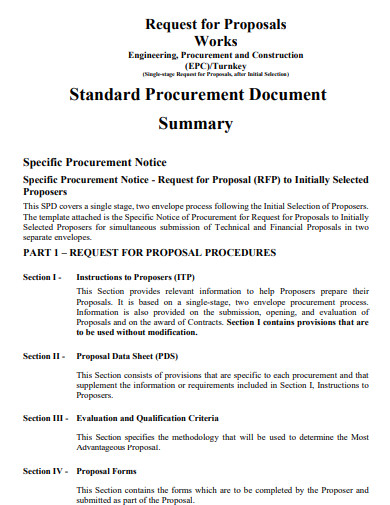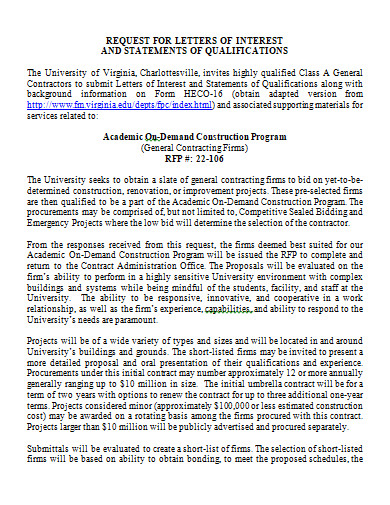An effective construction project begins with a clear and concise Sample Request for Proposal (RFP). The sample construction request for proposal provides potential contractors with a comprehensive overview of a project’s requirements, ensuring accurate bids and optimal outcomes. This document outlines the project’s objectives, specifications, budgetary constraints, and evaluation criteria. By standardizing the proposal process, it guarantees that all involved parties have a mutual understanding, promoting efficiency and transparency throughout the project’s duration.
33+ Construction Request for Proposal Samples
1. Proposal Template Bundle
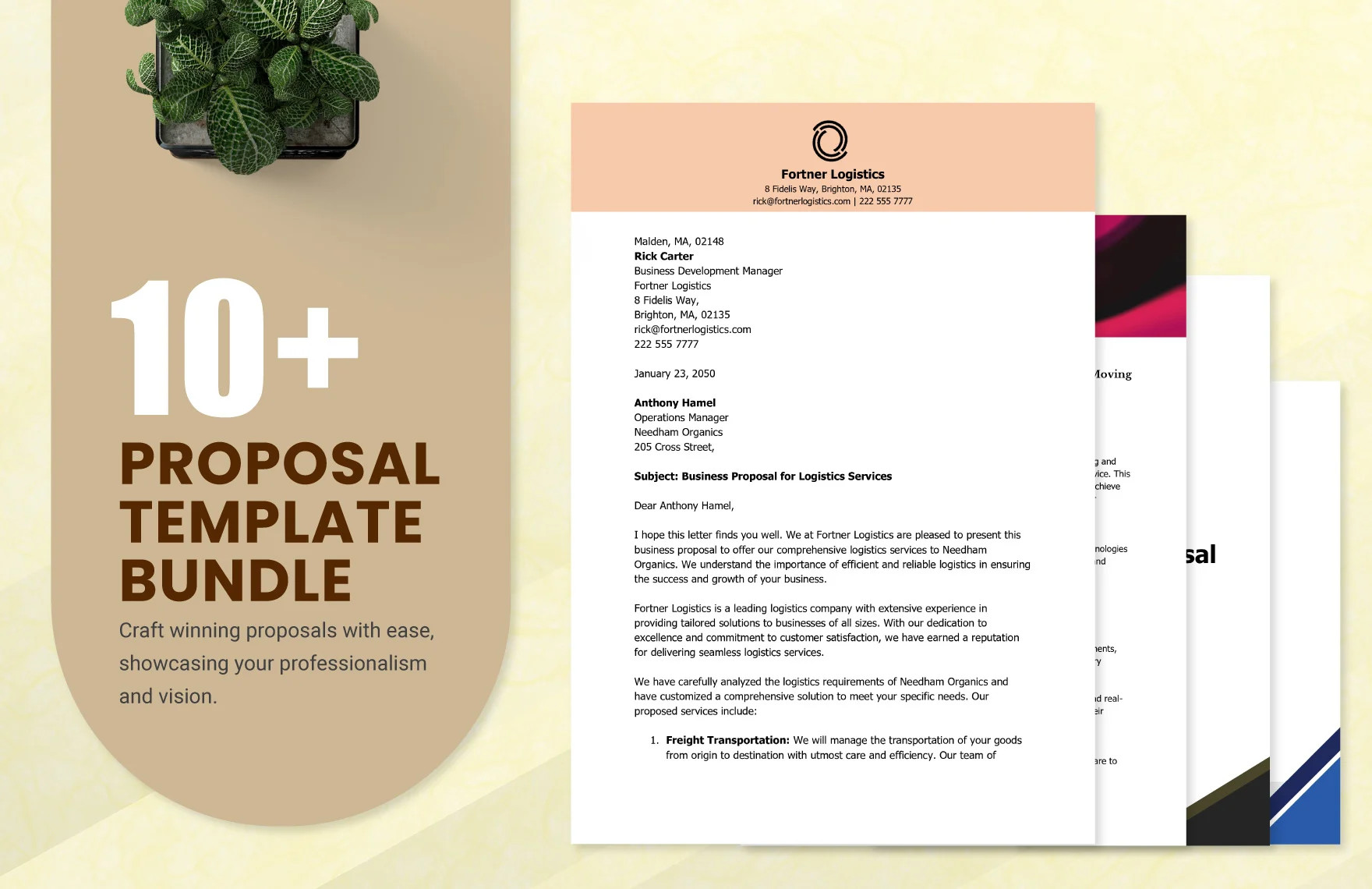
2. Construction Request for Proposal (RFP) Template Bundle
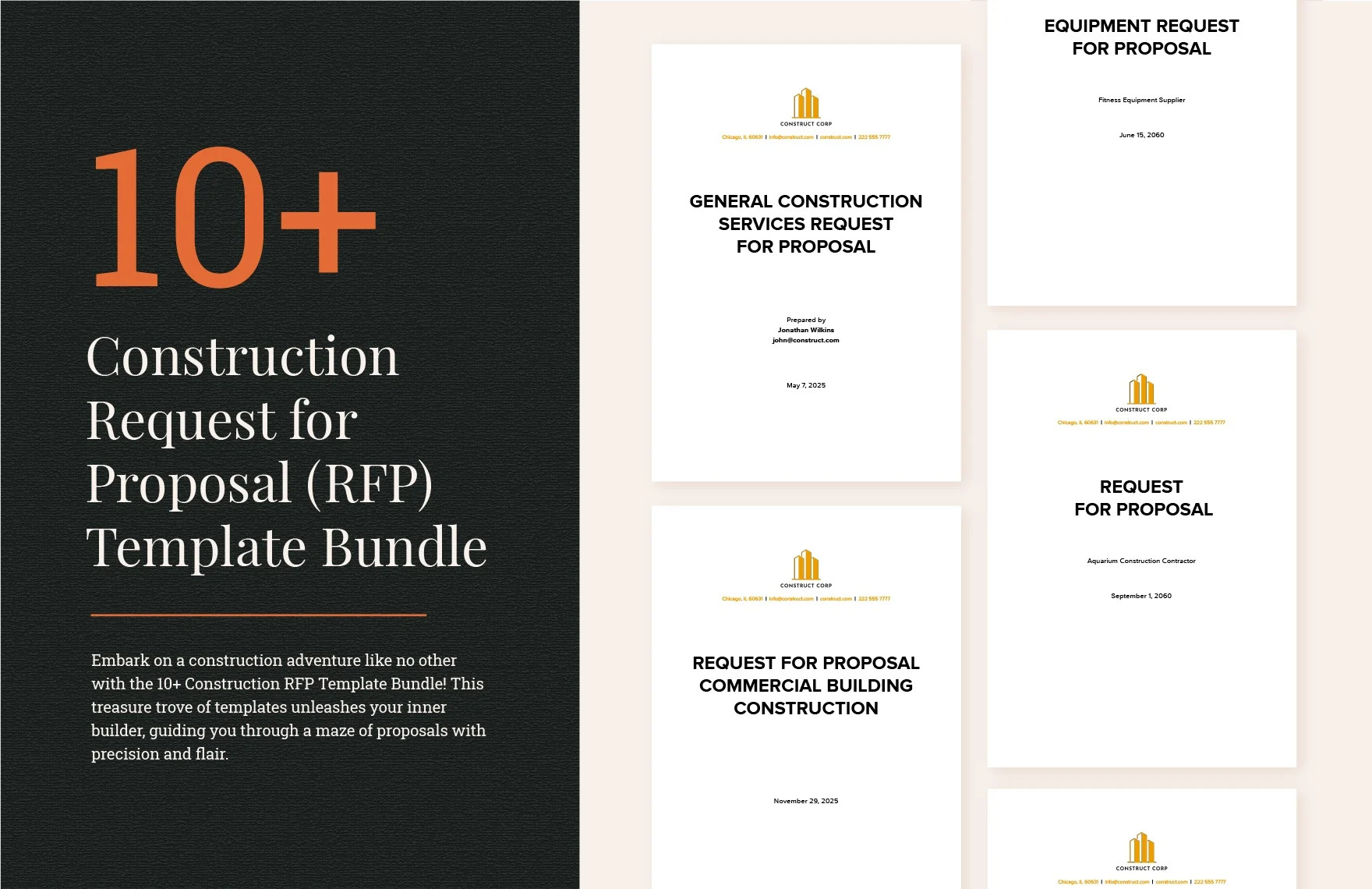
3. Construction Request For Proposal Template
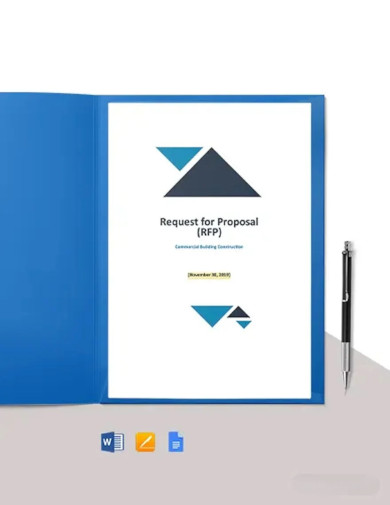
4. Construction Request for Bid Proposal Template
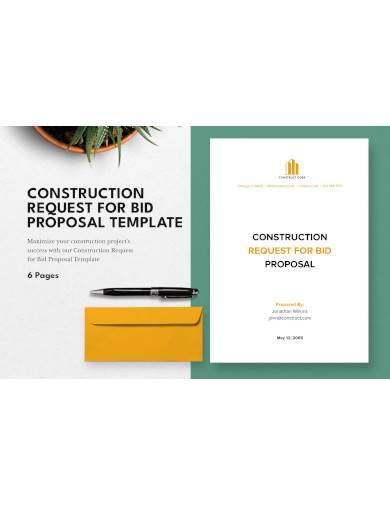
5. Sample Construction Request For Proposal Template
6. Construction Consulting Firm Request For Proposal Template
What is a Request for Proposal in Construction?
A Request for Proposal (RFP) in construction is a formal document that solicits sample proposals, often made through a competitive bidding process, by an interested buyer or client seeking to procure a specific service or project. This RFP is usually the step after a Request for Information (RFI), which is used to gather basic information about potential suppliers or contractors.
In the context of construction, an RFP will typically detail the scope and scale of a construction project. This may include specifics about the site, design expectations, materials required, time frames, cost expectations, and any other necessary details that would enable contractors or service providers to propose a solution that meets the client’s needs.
The primary objectives of an RFP in construction are:
Information Gathering: It provides potential bidders with the information required to submit a comprehensive proposal.
Transparency: An RFP ensures that the process of selecting a contractor or service provider is transparent, giving all potential bidders an equal opportunity to bid based on the same information.
Risk Mitigation: By clearly outlining expectations and requirements, an RFP helps to minimize the risk of misunderstandings or misinterpretations later in the project.
Cost Efficiency: It allows the client to compare and contrast various proposals to determine which offers the best value for money.
Quality Assurance: By laying out specific requirements and expectations, an RFP ensures that contractors or service providers are well-equipped to deliver the quality of work the client expects.
How Do You Write a Construction Proposal Request?
Writing an RFP for a construction project is a detailed process that requires careful planning and consideration.
Here’s a step-by-step guide to help you craft an effective RFP:
Introduction: Begin by introducing your organization and the purpose of the RFP. Provide context on why this construction project is necessary.
Project Overview: Describe the construction project in broad terms. Include the location, size, and any key objectives or outcomes you expect.
Scope of Work: This section should detail the work to be done. It may include site preparation, architectural designs, construction phases, materials required, and any other relevant details.
Schedule: Provide a timeline for the project. This should include key milestones like project start date, design approvals, construction phases, and expected completion date.
Budget Information: If you have a budget range for the project, include it here. This helps potential bidders gauge the feasibility of their proposals.
Proposal Submission Requirements: Clearly outline what you expect in the proposal submissions. This may include company background, past project references, proposed project approach, detailed budget breakdown, and timeline.
Evaluation Criteria: Describe the criteria by which you will evaluate the submitted proposals. This can range from cost-effectiveness, past performance, proposed methodology, and so on.
Terms and Conditions: Specify any legal or contractual conditions that the bidder should be aware of. This may include payment terms, penalties, insurance requirements, and other contractual obligations.
Submission Details: Provide details on how and when the proposals should be submitted. This includes submission deadline, format, and any other relevant instructions.
Contact Information: Provide contact details for a point person within your organization. This is the individual or team that bidders can reach out to with questions or clarifications.
Attachments: Attach any additional documents or materials that would help potential bidders understand the project better. This might include site maps, existing architectural designs, or any other relevant documentation.
In conclusion, an RFP in construction is a vital tool in ensuring that a construction project gets off to the right start. By detailing expectations and requirements, it sets the stage for a successful collaboration between the client and the contractor or service provider.
7. Basic Construction Request For Proposal Template
8. Civil Construction Work Request For Proposal Template
9. Construction Manager Request For Proposal Template
10. Construction Project Management Software Request For Proposal Template
11. Construction Inspection Services Request For Proposal Template
12. Construction Management at Risk Services Request For Proposal Template
13. Construction Supervision Work Request For Proposal Template
14. Construction Management and Inspection Services Request For Proposal Template
15. Project and Construction Management Request For Proposal Template
16. Road Construction Materials Request For Proposal Template
17. Construction Management Services Agent Request For Proposal Template
18. Final Design and Contribution Request For Proposal Template
19. Standard Construction Request For Proposal Template
20. Construction Services Request For Proposal Template
21. Construction of New Public Toilets Request For Proposal Template
22. Construction Quality Audit Request For Proposal Template
23. Home Construction Services Request For Proposal Template
24. Construction Vendors Request For Proposal Template
25. Printable Construction Request For Proposal Template
26. Construction Manager Services Request For Proposal Template
27. Engineering Procurement Construction Contract Request For Proposal Template
28. Construction Claims Legal Service Request For Proposal Template
29. Construction Project Request For Proposal Template
30. Construction Support Services Request For Proposal Template
31. Development of Construction Case Studies Request for Proposal Template
32. Construction Management Risk Services Request For Proposal Template
33. Construction Works Request For Proposal Template
34. Construction Request For Proposal in DOC
Elements of a Construction Request for Proposal
A construction Request for Proposal (RFP) is a comprehensive document that provides potential bidders with all the necessary information to craft their bid proposal. Breaking down the core elements provides a clearer picture of what is typically included:
Title and Introduction: This is where the nature of the construction project is initially presented. It sets the tone for what is to come and briefly explains the intentions of the RFP.
Background Information: This section gives a history or context to the construction project. For residential construction, this could detail the reasons for a new development or renovation.
Objectives and Goals: Here, the organization presents its primary objectives. Whether it’s a business proposal for a new office space or a proposal for a residential construction project, it’s essential to clearly define what success looks like.
Scope of Work (SOW): A more detailed segment, the SOW breaks down every facet of the project from the initial stages to completion. This includes the types of materials to be used, the phases of construction, and more.
Proposal Form Requirements: Potential bidders need to understand the format and information required in their proposal form. This ensures uniformity in responses, making it easier for the issuer to evaluate.
Budget and Payment Terms: A key element for bidders, this outlines the project’s financial aspects. Details on down payments, progress payments, and other financial stipulations are elaborated upon.
Evaluation Criteria: For potential contractors, understanding how their project proposal will be assessed is crucial. This section provides insight into what the issuing organization values most.
Contractual Obligations: Beyond the construction proposal itself, potential bidders need to know the terms of the construction contract they’re entering into, including warranties, insurance, and penalties.\
Instructions for Submission: A guide on how to submit the proposal letter, this ensures that all bidders are on the same page regarding deadlines, formats, and any other specifics.
Contact and Queries: Potential contractors might have questions, and they need to know who to reach out to. This section provides contact details for clarity.
Importance of a Construction Request for Proposal
The construction RFP isn’t just another business document—it holds substantial weight in the world of construction. Its importance stems from several key reasons:
Clear Communication: An RFP provides a clear channel of communication between the project owner and potential contractors. Through the RFP, project owners can express their needs and expectations explicitly.
Efficiency in Selection: With a well-structured RFP, project owners can efficiently compare and evaluate bid proposals, ensuring that the best contractor for the job is selected.
Risk Reduction: A detailed RFP minimizes ambiguities. With clear terms and conditions, the chances of misunderstandings or disputes during the construction project are considerably reduced.
Budget Management: By laying out budgetary expectations in the RFP, project owners can ensure that the construction project remains financially viable and within the established limits.
Establishing Credibility: For project owners, releasing a comprehensive RFP shows potential contractors that they are serious and professional about the construction project. It sets a precedent for the quality and standard expected.
Legal Safeguarding: An RFP, combined with the resulting construction contract, serves as a binding agreement. It provides legal protection to both parties by outlining obligations and expectations.
In essence, the RFP process in construction, from issuing the request to receiving a proposal letter, acts as the foundation for successful project execution. It bridges the gap between the project owner’s vision and its realization by a suitable contractor.
Related Posts
FREE 11+ Engineering Project Proposal Samples in PDF | MS Word
FREE 4+ Racing Sponsorship Proposal Samples [ Team, Car, Driver ]
FREE 10+ Nursing Project Proposal Samples [ Community, Health, Clinical ]
FREE 11+ Student Council Proposal Samples in PDF | DOC
FREE 10+ Facilities Management Proposal Samples in MS Word | Google Docs | Apple Pages | PDF
FREE 8+ Joint Venture Proposal Samples [ Commercial, Real Estate, Construction ]
FREE 10+ Scholarship Proposal Samples [ Project, Grant, Sponsorship ]
FREE 10+ Computer Purchase Proposal Samples in MS Word | Google Docs | Apple Pages | PDF
FREE 10+ Network Project Proposal Samples [ Design, Security, Bank ]
FREE 14+ Accounting Proposal Samples in PDF | MS Word
FREE 10+ Church Event Proposal Samples in MS Word | Google Docs | Apple Pages | PDF
FREE 10+ History Proposal Samples [ Dissertation, Thesis, Paper ]
FREE 34+ Sponsorship Proposal Samples in PDF | MS Word | Pages | Google Docs
FREE 11+ Cost Proposal Samples & Templates in PDF
FREE 11+ Maintenance Proposal Samples in MS Word | Google Docs | PDF

